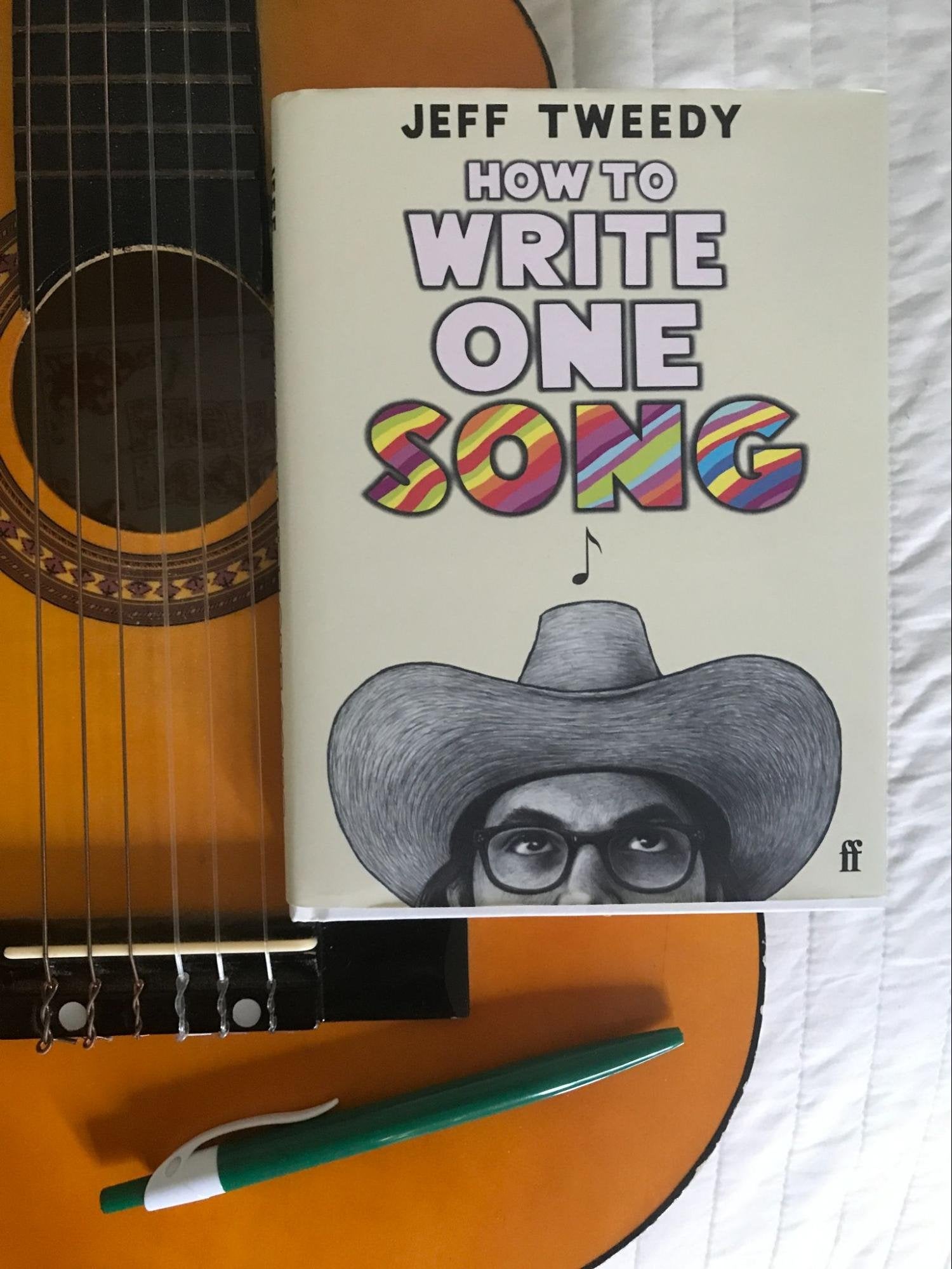
By Sadie Tresnit
When I got my first guitar at the age of five, I had no notions of being a songwriter. I was much more concerned with securing a job as a princess or veterinarian, thank you very much. As the years went by, I steadily got more interested in music, growing my collection, if not my expertise. The start of the pandemic inspired me to pick up my childhood guitar again, and I spent days learning how to play my favorite songs. Now that I’m an adult, I have the much more mature dream of becoming a rockstar.
But according to Jeff Tweedy in his 2020 book How to Write One Song, maybe I should take a step back. As he puts it, if you want to be a star, “don’t bother. You’re going to lose. Even if you make it, you’ll lose.” Instead, he suggests emphasizing doing over being. When it comes down to it, what I really want to do is make music people like. When I began this article, I just had no idea how to get started. Based on the book’s title, I found myself in the right place.
When I sat down to get started, of course, I envisioned a perfect future for myself: I would somehow harness the clever lyrics and catchy tunes of Bob Pollard, Paul Westerberg, and Tweedy himself all rolled into one, pop out enough brilliant songs for a self-recorded Bandcamp album in an afternoon, get picked up by college stations around the country, and eventually get signed to the Matador label where I could be best friends with the members of Horsegirl forever. Pretty straightforward, right?
Not quite. I’m in the middle of writing a thesis project on the connections between music and poetry, but for someone with a huge appreciation for both art forms, I’ve never been very good at creating my own version of either one. In my room with my same sixteen-year-old mini “baby” guitar, as I like to call it, my first instinct was to go back to my past incomplete songwriting attempts. Tweedy recommends recording little bits of songs when they pop into your head, and luckily, that’s a habit I had picked up before reading the book. I was able to draw on some of my past noodlings and it wasn’t an immediate, one-day process.
And of course, I had apartment living to contend with. No loud noises for me. Somehow I don’t think I could harness the raw sound of the early Replacements even if I had all the empty practice space in the world, but a girl can dream. Even so, I had fun noodling around on the guitar until I found a chord progression I liked. I’ve never been able to make music theory stick with me, so I usually have to mess around a bit before I land on something new that sounds good. I started (where else?) with G, C, and D, like every beginner ever. When I got bored of that, it switched to B, F#, and E.
I felt like I ran into a wall when it came to lyrics. My big problem is that I get too caught up in the moment, trying to be clever by singing about how I have no good ideas for a song. In my head, I’m a master wordsmith and probably the wittiest person ever to live. Out loud, I’m Buddy the Elf’s lackluster Christmas gram. I think part of it comes from knowing way too many incredible artists to compare myself to. As a DJ, I’m always looking for how songs and musicians relate to each other. Naturally, I have expectations for myself on what influences will show up in my work, and it’s disappointing when they don’t. Maybe it’s silly, but it’s hard for me to start with a clean slate.
Lucky for me, the entire book was beyond helpful with this issue. Reading Tweedy’s words, I felt the same as I do when one of my friends in STEM explains something to me: “This person is so cool and I’m so glad they can bring this subject down to my level.” The first section of the book, focused on the why of songwriting, was set up in a rapid-fire troubleshooting format that perfectly mirrored everything in my head as I was getting started. “I Don’t Know What to Write About,” “I Don’t Have Time,” and other similarly worried subheadings peppered the pages of chapter three, entitled “Obstacles.” It was like he was reading my mind.
But it was the book’s second section that helped me the most with my lyrical struggles. Full of various word exercises, it landed in the same part of my brain that adores crossword puzzles (a favorite hobby of Tweedy’s, incidentally). I got my notebook out and had a great time working on various lists and connections between words. One of my favorite activities involved borrowing phrases from a conversation and twisting them into a poem. Since I was alone, I pulled from Gilmore Girls episodes instead - not quite as natural, but still pretty entertaining. Others included borrowing phrases from books, experimenting with half rhymes, and writing from an outside perspective.
At the end of the day, I had a song. It wasn’t perfect by any means — they say we’re our own worst critics, and while I’m inclined to agree, the song objectively isn’t great. But still, it’s mine! And if I can write one song, who’s to say I can’t keep going? One of them might even be good one day. There’s no Bandcamp album in my near future, and no hangouts with Horsegirl, but it’s exciting knowing that I have a new skill to keep building.
